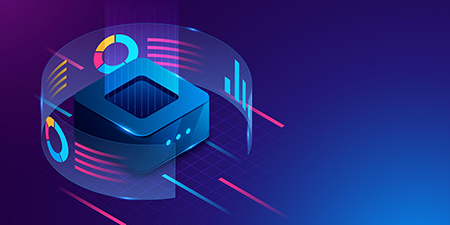The Rise of Smart Platforms: Transforming Industries and Connectivit In an era where technology is the driving force behind innovation,
the advent of smart platforms has revolutionized the way we interact with information,
services, and each other. Smart platforms represent an interconnected ecosystem where data, devices, and applications converge to create seamless experiences and drive efficiency across various domains.
What are Smart Platforms?
Smart platforms are integrated digital ecosystems that leverage advanced technologies such as artificial intelligence (AI), Internet of Things (IoT), big data analytics, and cloud computing to enable seamless connectivity and interaction between users, devices, and applications. These platforms serve as the backbone for numerous services and applications, ranging from smart cities and healthcare to transportation and finance.
interaction between users, devices, and applications. These platforms serve as the backbone for numerous services and applications, ranging from smart cities and healthcare to transportation and finance.
Key Components of Smart Platforms
- Data Integration and Analytics: Smart platforms aggregate vast amounts of data from diverse sources, including sensors, devices, and user interactions. Advanced analytics algorithms process this data in real-time to derive valuable insights and inform decision-making processes.
- Interconnectivity: Smart platforms facilitate seamless communication and interaction between devices and systems, enabling them to work together synergistically. This interconnectedness is fundamental to the concept of the Internet of Things (IoT) and enables the automation of various processes and services.
- Artificial Intelligence and Machine Learning: AI and machine learning algorithms play a pivotal role in smart platforms by enabling predictive analytics, personalized recommendations, and autonomous decision-making. These technologies empower smart platforms to continuously learn and adapt to changing environments and user preferences.
- Cloud Infrastructure: Cloud computing provides the scalable infrastructure required to support the vast computational and storage needs of smart platforms. Cloud-based services enable flexibility, scalability, and accessibility, allowing users to access platform resources from anywhere, at any time.
- Security and Privacy: Given the sensitive nature of the data processed and transmitted within smart platforms, robust security and privacy measures are paramount. Advanced encryption techniques, authentication mechanisms, and data governance frameworks ensure the confidentiality, integrity, and availability of data across the platform.
Applications of Smart Platforms
- Smart Cities: Smart platforms are transforming urban environments by optimizing resource allocation, enhancing public safety, and improving infrastructure management. From smart transportation systems to intelligent energy grids, these platforms enable cities to become more efficient, sustainable, and responsive to citizen needs.
- Healthcare: In the healthcare sector, smart platforms facilitate remote patient monitoring, personalized treatment plans, and predictive analytics for disease prevention. By integrating medical devices, electronic health records, and diagnostic tools, these platforms improve patient outcomes and streamline healthcare delivery.
- Manufacturing and Industry 4.0: Smart platforms are driving the fourth industrial revolution by enabling the digitization and automation of manufacturing processes. From predictive maintenance and asset tracking to supply chain optimization, these platforms enhance operational efficiency, reduce costs, and accelerate time-to-market for products.
- Financial Services: In the financial services industry, smart platforms power digital banking, automated trading, and risk management systems. By harnessing real-time data analytics and AI-driven insights, financial institutions can personalize customer experiences, detect fraudulent activities, and mitigate financial risks.
The Future of Smart Platforms
As technology continues to evolve and permeate every aspect of our lives, the role of smart platforms will become increasingly central to our digital ecosystem. The proliferation of connected devices, coupled with advances in AI and data analytics, will fuel innovation and drive the development of new and transformative applications.
However, the widespread adoption of smart platforms also raises important considerations regarding data privacy, security, and ethical use of technology. As we embrace the opportunities afforded by smart platforms, it is imperative to establish robust regulatory frameworks and ethical guidelines to ensure that these technologies serve the greater good and uphold fundamental human values.
In conclusion, smart platforms represent a paradigm shift in how we conceive, interact with, and harness the power of technology. By leveraging the collective intelligence of interconnected systems and devices, smart platforms have the potential to unlock new possibilities, drive economic growth, and enhance the quality of life for individuals and communities around the world.
If you like the article and in need fo such a service, please dont hesitate to contact us



